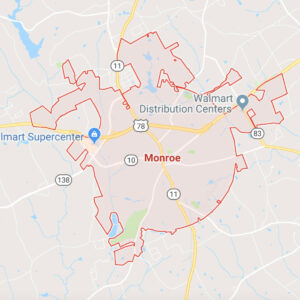For any assisted living facility in Georgia, understanding and adhering to state regulations isn’t just about following rules – it’s about committing to the safety and well-being of every resident. These regulations are designed to ensure that facilities provide the highest quality of care, maintain a safe environment, and respect the rights and dignity of all individuals in their care. This guide aims to demystify Georgia’s assisted living regulations, providing a clear path for facilities to meet and exceed these essential standards.

The Importance of Compliance
Complying with Georgia’s assisted living regulations is crucial. It’s not just about avoiding legal troubles; it’s about creating a place where residents feel safe, cared for, and respected. When a facility is in compliance, it means they’re upholding a standard that assures families their loved ones are in good hands.
Consequences of Non-Compliance
Failing to meet these regulations can have serious consequences. Beyond legal penalties and fines, non-compliance can lead to a damaged reputation, loss of trust from the community, and, most critically, harm to the residents. That’s why understanding and implementing these regulations is not just a legal obligation but a moral one.
As we move forward, we’ll explore the key areas of Georgia’s assisted living regulations, offering practical advice and resources to help facilities ensure they’re providing the best care possible while staying within the legal framework.
Georgia Assisted Living Regulations
Navigating the regulatory landscape of Georgia’s assisted living facilities is crucial for ensuring the highest standard of care. These regulations are designed to protect residents and provide a framework for facilities to operate effectively and ethically. Here’s a detailed look at what these regulations entail and who oversees them.
Georgia’s Regulatory Framework
Georgia’s regulations for assisted living facilities encompass a wide range of areas, including staffing requirements, resident care, medication management, facility operations, and residents’ rights. These rules ensure that facilities provide a safe, healthy, and supportive environment for their residents. Key aspects include:
- Staffing
Regulations outline the minimum staff-to-resident ratios, qualifications, and training requirements to ensure residents receive attentive and professional care. - Resident Care
Standards are set for personal care, dietary services, recreational activities, and medical services to ensure each resident’s needs are met comprehensively. - Facility Operation
Guidelines dictate how facilities should be maintained, including safety protocols, cleanliness standards, and emergency preparedness plans. - Residents’ Rights
Regulations protect residents’ rights, ensuring they are treated with dignity, have privacy, and can make informed decisions about their care.
Agencies and Bodies Responsible for Regulation and Enforcement
Several key agencies and bodies are responsible for the regulation and enforcement of assisted living facilities in Georgia:
- Georgia Department of Community Health (DCH)
The DCH, through its Healthcare Facility Regulation division, licenses and inspects assisted living facilities. They ensure compliance with state and federal regulations, aiming to protect the health and safety of residents. Facilities must adhere to these standards to maintain their license and operate legally. - Georgia Healthcare Facility Regulation (HFR)
A part of the DCH, HFR is directly involved in the oversight of assisted living facilities, conducting inspections, investigating complaints, and enforcing regulations. - Long-Term Care Ombudsman
This program advocates for residents’ rights and quality care in long-term care facilities. Ombudsmen can assist with resolving complaints and concerns about residents’ treatment and conditions in assisted living facilities.
The Schenk Nursing Home Abuse Law’s resource provides further insight into who regulates nursing homes and assisted living facilities in Georgia, offering valuable information for facilities aiming to understand their regulatory obligations better.
Licensing Requirements
Obtaining and maintaining a license for an assisted living facility in Georgia is a comprehensive process that ensures facilities meet the state’s high standards for resident care and safety. Here’s a step-by-step guide to navigating the licensing requirements, including necessary documentation, inspections, and ongoing compliance checks.
Step 1: Understanding the Licensing Requirements
Before applying for a license, it’s crucial to thoroughly understand the specific requirements set forth by the Georgia Department of Community Health (DCH). These requirements cover various aspects of operation, including facility standards, staff qualifications, resident care policies, and safety protocols.
Step 2: Preparing Necessary Documentation
- Facility Information: Provide detailed information about the facility, including its layout, capacity, services offered, and operational plans.
- Ownership and Management: Submit documentation regarding the ownership structure, management personnel, and their qualifications.
- Policies and Procedures: Develop and present comprehensive policies and procedures covering all aspects of resident care, staff training, emergency procedures, and residents’ rights.
Step 3: Submitting the Application
- Application Form: Complete the application form provided by the DCH, ensuring all information is accurate and up-to-date.
- Fees: Pay the necessary application fees, which vary based on the facility’s size and type.
- Supporting Documents: Attach all required supporting documents, including background checks for staff, floor plans, and proof of financial stability.
Step 4: Undergoing Inspections
- Initial Inspection: Once your application is submitted, the facility will undergo an initial inspection by the DCH or its designated agency. This inspection assesses the facility’s compliance with state regulations.
- Corrective Actions: If any deficiencies are found, the facility must take corrective actions and possibly undergo a follow-up inspection.
Step 5: Receiving the License
- Approval: If the facility meets all requirements and passes the inspection, the DCH will issue a license.
- Displaying the License: The license must be displayed prominently within the facility where residents and visitors can easily see it.
Step 6: Maintaining Ongoing Compliance
- Regular Inspections: Facilities are subject to regular inspections to ensure ongoing compliance with state regulations.
- Reporting Requirements: Facilities must adhere to reporting requirements, including incident reports and changes in operation or management.
- Renewal: Licenses must be renewed periodically, which typically involves submitting updated documentation and undergoing another inspection.
Staffing Regulations
Staffing is a critical component of any assisted living facility’s operations, directly impacting the quality of care and the overall well-being of residents. Georgia has specific regulations regarding staffing, including ratios, qualifications, and training requirements. Understanding and adhering to these regulations is essential for maintaining a high standard of care.
Staffing Ratios
- Minimum Ratios: Georgia regulations specify minimum staff-to-resident ratios to ensure that each resident receives adequate attention and care. These ratios may vary based on the time of day and the residents’ needs.
- Nighttime Staffing: Even during nighttime hours, facilities must have a sufficient number of staff available to meet the needs of residents, including responding to emergencies.
Staff Qualifications
- Background Checks: All staff members must undergo thorough background checks to ensure they are suitable for working with vulnerable populations.
- Health Screenings: Staff may also be required to undergo health screenings to ensure they do not pose a health risk to residents.
- Specific Roles: Certain roles within the facility, such as medication aides or nursing staff, have additional qualification requirements, including certifications or licenses relevant to their duties.
Training Requirements
- Initial Training: Staff members must receive initial training upon hiring to familiarize them with the facility’s policies, emergency procedures, and the specific needs of the residents they will be serving.
- Ongoing Education: Ongoing training is also required to ensure staff members stay updated on best practices in elder care, changes in regulations, and any new skills needed to care for residents.
- Specialized Training: Staff working with residents with specific conditions, such as dementia, may require additional specialized training.
Importance of Adhering to Staffing Regulations
- Quality Care: Adequate staffing ensures that residents receive the attention and care they need. Well-qualified and trained staff can better address the physical, emotional, and social needs of residents.
- Safety: Proper staffing ratios are crucial for resident safety, ensuring that emergencies are promptly addressed and that residents receive timely assistance with their daily needs.
- Compliance: Adhering to staffing regulations is not only essential for providing quality care but also for maintaining the facility’s license and avoiding penalties.

Resident Care Policies
In Georgia, assisted living facilities are required to adhere to comprehensive resident care policies that ensure the health, safety, and well-being of each individual. These policies cover a range of care aspects, from health services to medication management and the upholding of resident rights. Understanding and implementing these policies are fundamental to providing high-quality, personalized care.
Health Care Services
Facilities must have clear policies outlining the health care services provided, including routine and emergency care. This involves coordination with healthcare providers, timely medical attention, and access to necessary medical treatments. The facility should have procedures for responding to medical emergencies and a system for monitoring the ongoing health needs of residents.
Medication Management
Proper medication management is crucial in assisted living settings. Policies must specify how medications are stored, administered, and monitored to ensure residents receive the correct dosages at the right times. Staff responsible for medication management typically need specialized training and may need to meet certain qualifications, depending on state regulations.
Resident Rights
Facilities must have policies that protect and promote the rights of residents. This includes the right to privacy, dignity, and autonomy. Residents should have the freedom to make personal choices, participate in social activities, and have access to their own belongings. Policies should also outline the process for filing grievances and ensure that residents can voice concerns without fear of retaliation.

Personalized Care Plans
Each resident should have a personalized care plan that addresses their specific needs, preferences, and goals. These plans are developed in collaboration with the resident, their family, and healthcare providers. They should be regularly reviewed and updated to reflect any changes in the resident’s condition or preferences.
Regular Assessments
Regular assessments are vital to ensure that the care provided continues to meet the needs of each resident. These assessments should evaluate the resident’s physical, emotional, and cognitive well-being and adjust care plans as necessary. Regular assessments also help identify any potential issues early, allowing for prompt intervention.
Importance of Resident Care Policies
- Ensures Consistent Care: Clear policies provide a framework for consistently delivering high-quality care to all residents.
- Promotes Safety and Well-being: Well-defined care policies help prevent errors, manage risks, and ensure that residents’ health and well-being are prioritized.
- Meets Legal Requirements: Adhering to required care policies is not only best practice but also a legal requirement for operating an assisted living facility in Georgia.

Safety and Emergency Preparedness
Safety and emergency preparedness are critical components of running an assisted living facility in Georgia. Regulations set forth specific standards and procedures to ensure the safety of residents, particularly in times of crisis or emergency. Understanding and implementing these guidelines is essential for maintaining a secure environment and ensuring a swift, effective response when emergencies occur.
Safety Standards
Georgia regulations require assisted living facilities to adhere to strict safety standards to prevent accidents and injuries. These standards cover a wide range of areas, including:
- Fire Safety: Facilities must have fire detection and suppression systems in place, along with clear evacuation routes and procedures.
- Building Security: Adequate security measures should be implemented to protect residents from unauthorized access and potential intruders.
- Hazard Prevention: Regular inspections and maintenance are necessary to identify and mitigate potential hazards, such as slippery floors, poor lighting, or unsafe furniture.
Emergency Procedures
Facilities must have comprehensive emergency procedures that outline the steps to be taken in various crisis situations, including:
- Evacuation Plans: Detailed plans for evacuating the facility in case of fire, natural disasters, or other emergencies.
- Medical Emergencies: Protocols for responding to medical emergencies, including who to contact and how to provide immediate care until professional help arrives.
- Utility Failures: Procedures for handling utility failures, such as power outages or water supply issues, to ensure residents’ needs continue to be met.
Regular Drills and Equipment Checks
To ensure preparedness, facilities must conduct regular drills that simulate various emergency scenarios. These drills help both staff and residents understand what to do in an actual emergency. Additionally, regular checks and maintenance of emergency equipment, such as fire extinguishers, generators, and medical supplies, are crucial to ensure they are functional when needed.
Staff Training
Staff should receive ongoing training in emergency procedures, first aid, and crisis management. This training ensures that every team member knows their role during an emergency and can respond confidently and effectively. Training should be updated regularly to reflect any changes in procedures or regulations.
Importance of Safety and Emergency Preparedness
- Protects Residents: Robust safety and emergency preparedness measures are vital for protecting residents, particularly those who may have limited mobility or cognitive impairments.
- Ensures Compliance: Adhering to safety and emergency regulations is not only critical for resident well-being but also a legal requirement for operating an assisted living facility in Georgia.
- Builds Trust: Demonstrating a commitment to safety and preparedness builds trust among residents, families, and the community, showing that the facility is dedicated to providing a secure environment.
Reporting and Responding to Abuse and Neglect
In Georgia, assisted living facilities are not only caretakers but also mandated reporters of any suspected abuse or neglect. Understanding the legal obligations and proper procedures for reporting and responding to these serious issues is crucial for the safety and well-being of residents.
Mandatory Reporting of Abuse or Neglect
Georgia law requires certain individuals, including healthcare professionals, caregivers, and facility staff, to report any suspected abuse, neglect, or exploitation of elders or vulnerable adults. The Schenk Nursing Home Abuse Law’s guide provides a detailed overview of how to report nursing home abuse in Georgia, which is also applicable to assisted living facilities. Key points include:
- Recognizing Signs: Staff should be trained to recognize signs of abuse or neglect, including physical injuries, sudden behavioral changes, or unexplained financial transactions.
- Immediate Reporting: As soon as abuse or neglect is suspected, it must be reported to the appropriate authorities, such as Georgia’s Adult Protective Services (APS) or law enforcement.
- Confidentiality: Reports should be made confidentially, and the reporter’s identity is usually protected under the law.
Steps to Take When Abuse is Reported
Once a report of abuse or neglect is made, the facility must take immediate and appropriate action:
- Ensure Safety
The first priority is to ensure the safety and well-being of the resident(s) involved. This may involve removing them from the situation or providing medical care if needed. - Internal Investigation
The facility should conduct its own thorough investigation to understand what happened and who is responsible. This involves interviewing staff, residents, and witnesses, as well as reviewing relevant documentation and surveillance footage if available. - Cooperate with Authorities
Facilities must cooperate fully with any external investigations conducted by APS, law enforcement, or other regulatory bodies. - Corrective Action
Based on the findings of the investigation, the facility must take corrective action to prevent future incidents. This might include retraining staff, changing policies, or taking disciplinary action against those responsible.
Importance of Proper Reporting and Response
- Protects Residents
Prompt and proper reporting, along with an effective response, ensures the immediate and long-term safety of residents. - Legal Compliance
Adhering to mandatory reporting laws is a legal requirement that helps protect the facility from liability and maintains its operating license. - Trust and Transparency
Demonstrating a commitment to addressing and preventing abuse and neglect builds trust with residents, families, and the community.

Physical Environment Standards
The physical environment of an assisted living facility significantly impacts the health, safety, and overall well-being of its residents. Georgia regulations set specific standards for the physical environment to ensure that facilities provide a safe, comfortable, and accessible living space. Understanding and adhering to these requirements is crucial for maintaining a high quality of care and compliance with state laws.
Regulatory Requirements for Physical Environment
- Building Safety
Facilities must comply with state and local building codes, including fire safety regulations. This means having proper fire detection and suppression systems, clearly marked evacuation routes, and regular safety drills. - Maintenance
Regular maintenance is essential to ensure that all areas of the facility are clean, safe, and in good repair. This includes timely repairs, routine checks of electrical and plumbing systems, and ensuring that outdoor areas are safe and accessible. - Accessibility
The facility must be accessible to residents with varying levels of mobility. This includes wheelchair-accessible entrances and exits, handrails in hallways and bathrooms, and appropriate accommodations for residents with disabilities.
Importance of Maintenance
Regular and thorough maintenance ensures that the facility remains a safe and pleasant place for residents to live. It helps prevent accidents, such as falls or equipment malfunctions, and contributes to the overall health and comfort of residents. Well-maintained facilities also reflect a commitment to quality and can enhance the reputation of the facility among prospective residents and their families.
Importance of Accessibility
Ensuring that the facility is accessible to all residents is not only a regulatory requirement but also a crucial aspect of providing inclusive and respectful care. Accessibility allows residents to move freely and independently, promoting their autonomy and dignity. It also ensures that residents can safely and easily access all areas of the facility, participate in activities, and enjoy a good quality of life.
Importance of Resident Comfort
The physical environment significantly affects residents’ quality of life. Comfortable, well-designed living spaces can enhance residents’ mood, well-being, and sense of home. Facilities should consider factors like lighting, temperature control, noise levels, and the overall aesthetic of the environment to create a welcoming and comfortable space for residents.
Residents’ Rights and Facility Responsibilities
In Georgia, residents of assisted living facilities are entitled to a series of rights designed to protect their dignity, autonomy, and quality of life. Facilities have the responsibility to not only respect these rights but also actively ensure they are upheld. Understanding these rights and the corresponding responsibilities of the facilities is crucial for creating a respectful, empowering environment for all residents.
Comprehensive Overview of Residents’ Rights
Residents’ rights in Georgia typically include, but are not limited to:
- Right to Dignity and Respect: Residents have the right to be treated with consideration, respect, and recognition of their dignity and individuality.
- Right to Privacy: This includes privacy in their living quarters, during medical treatment, and in personal care.
- Right to Make Personal Choices: Residents can make choices about their daily life in the facility, including activities, schedules, and health care decisions.
- Right to Be Informed: Residents must be informed about their medical condition, treatment options, and any changes in the facility’s policies or services that may affect them.
- Right to Manage Own Finances: Residents have the right to manage their financial affairs unless legally designated to a guardian or representative.
- Right to Voice Grievances: Residents can freely voice grievances and recommend changes without fear of retaliation.
Facility Responsibilities to Uphold Residents’ Rights
Facilities must take proactive steps to ensure these rights are respected:
- Policies and Training: Facilities should have clear policies in place that outline residents’ rights and ensure all staff are trained to understand and uphold these rights.
- Informing Residents: Facilities must inform residents of their rights upon admission and periodically thereafter. This information should be provided in a way that is understandable to the resident.
- Addressing Grievances: Facilities need a process for receiving and addressing grievances from residents and their families promptly and effectively.
- Regular Assessments: Facilities should regularly assess whether residents’ rights are being upheld and make any necessary improvements.
Role of Resident Councils and Family Meetings
- Resident Councils: Many facilities establish resident councils, which give residents a collective voice to express concerns, offer suggestions, and participate in decisions about the facility. These councils can play a crucial role in upholding residents’ rights.
- Family Meetings: Regularly scheduled family meetings can provide a forum for residents and their families to discuss concerns, ask questions, and provide feedback to the facility’s management. These meetings can help ensure that residents’ rights and needs are being met.
Documentation and Record-Keeping
Proper documentation and record-keeping are essential aspects of managing an assisted living facility in Georgia. They serve as a foundation for high-quality care, regulatory compliance, and protection for both residents and the facility. Understanding the detailed requirements for various types of records and adhering to best practices for confidentiality and accuracy is crucial.
Resident Records
- Personal Information: Facilities must maintain up-to-date records of each resident’s personal information, including contact details, medical history, and any legal documents like power of attorney or advance directives.
- Care Plans: Detailed and personalized care plans should be documented for each resident, outlining their specific needs, preferences, and any special instructions for care.
- Medical Records: Accurate and comprehensive medical records are essential, including documentation of all medical treatments, medications, and any changes in the resident’s health status.
- Incident Reports: Any incidents or accidents involving the resident, such as falls, injuries, or significant health events, must be thoroughly documented and reported as required by Georgia regulations.
Staff Documentation
- Employee Records: Facilities must keep detailed records for each staff member, including their qualifications, background checks, training history, and any disciplinary actions.
- Training Documentation: Records of ongoing staff training and professional development activities should be maintained to ensure compliance with regulatory requirements and best practices in care.
Administrative Records
- Operational Policies: Documentation of the facility’s operational policies and procedures, including emergency plans, safety protocols, and resident rights policies, should be readily available and regularly updated.
- Inspection and Compliance Reports: Records of all inspections, compliance checks, and any corrective actions taken in response to regulatory reviews should be meticulously maintained.
Best Practices for Confidentiality and Accuracy
- Confidentiality: All records must be kept confidential and secure, accessible only to authorized personnel. Facilities must comply with HIPAA and other privacy regulations to protect residents’ sensitive information.
- Accuracy: Ensure all documentation is accurate, up-to-date, and reflective of the actual care and services provided. Regular audits and reviews can help maintain the integrity of records.
- Digital Record-Keeping: Utilizing electronic health records (EHR) systems can improve the accuracy, accessibility, and security of documentation. However, it’s crucial to have backup systems and data protection measures in place.
- Training: Staff should be trained in proper documentation practices, understanding the importance of accurate and timely record-keeping.
FAQs on Adhering to Georgia’s Assisted Living Regulations
Navigating the regulations for assisted living facilities in Georgia can be complex. Facilities often have questions about compliance, resources, and where to find support and legal advice. Here are answers to some common questions that can help guide facilities in maintaining compliance and ensuring the best care for residents.
What are the most important regulations I should be aware of?
The most critical regulations cover areas like licensing, staffing, resident care, safety standards, and residents’ rights. It’s essential to familiarize yourself with the Georgia Department of Community Health’s guidelines and any updates to state laws.
How often are facilities inspected, and what should I expect?
Facilities are typically inspected regularly by the Georgia Department of Community Health or other designated agencies. Inspections can be routine or in response to a complaint. Expect inspectors to review documentation, observe care practices, and assess the physical environment and safety protocols.
What should I do if I’m unsure about a specific regulation?
If you’re unsure about a specific regulation, consult the Georgia Department of Community Health’s resources or seek advice from a legal professional specializing in elder care and assisted living regulations.
How can I ensure my staff is adequately trained in compliance?
Provide regular, comprehensive training sessions covering all aspects of compliance, from resident care to emergency procedures. Consider bringing in experts or using online resources specifically designed for training in assisted living regulations.
What are the best practices for maintaining accurate and confidential records?
Implement a secure and efficient record-keeping system, train staff on proper documentation practices, conduct regular audits to ensure accuracy, and stay updated on privacy laws to maintain confidentiality.
Where can I find resources and support for complying with regulations?
Resources are available through the Georgia Department of Community Health, the Georgia Health Care Association, and various online platforms offering guidance on assisted living regulations. Networking with other facilities can also provide insights and support.
What should I do if there’s an incident of non-compliance?
Immediately address the issue, take corrective action, and document everything. If necessary, report the incident to the appropriate authorities and seek legal advice on how to proceed and prevent future incidents.
When should I seek legal advice?
Seek legal advice if you’re facing a compliance issue, need clarification on regulations, or are dealing with a legal claim or lawsuit. An lawyer specializing in elder care law can provide guidance and representation.





